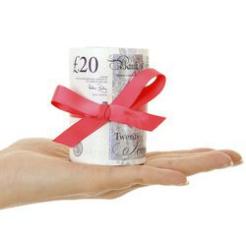It’s not just arts and education charities that need to consider the implications of gifts from controversial major donors and corporates. The subject of ethics isn’t clear-cut, says Adrian Beney, but every charity needs to know where it stands on the matter.
Controversial gifts to charities were in the spotlight in the last weeks of 2011. Lord Woolf reported on the Saif Gaddafi gift to the London School of Economics; 8,000 people petitioned the Tate about a 21-year-old sponsorship deal with BP, and a legacy to the National Library of Wales from a former Nazi sympathiser was accepted after careful consideration by the trustees but criticised by the Welsh heritage minister.
Should other charities regard this as a storm which only affects the education and arts sectors? No. Many column inches were devoted to the charities that did and did not get involved with the last edition of the News of the World (NOTW). In 2010 the Royal British Legion was offered £4.6m by Tony Blair, the Prime Minister who sent troops into two controversial recent wars, and Girlguiding Scotland, at the time of writing, is still facing a very hard decision about acceptance of a substantial legacy from a convicted paedophile. Controversial gifts are made to all charities, regardless of sub-sector.
So should we respond by battening down the hatches, and only accept gifts from ‘safe’ sources? That is an option, but how should we decide what is and is not acceptable? And is the ‘good’ impact that comes from spending the money altered by the way in which it was made?
The Disasters Emergency Committee accepted free advertising in the last edition of NOTW because the money raised would save lives. How can any trustee choose to not save a human life? The ‘good’ in this case outweighed the ‘bad’ – the sullied source of the free advertising.
Some people were angry that DEC and other charities accepted this offer. But how can anyone be rationally angry that precious lives have been saved? There was clearly a conflict between the ethic of phone hacking (bad) and the ethic of saving human life (good). So shouldn’t the complainants have saved their anger for the newspaper and not the charity?
At the heart of this is the question of how much the ethic of the donor matches and rubs off on the recipient, and how much the reputation of the donor rubs off on the recipient. These are two separate things. The ethics are a philosophical question to which there is often no single or simple answer, while the question of reputation is a management one. Unfortunately we can’t expect the average donor to make this distinction, but it’s an essential one in thinking about difficult gifts.
Could an anti-landmines charity accept a gift from a landmines manufacturer? Maybe this is clear-cut, but even here couldn’t it be argued that if the money were used to campaign against that very manufacturer, then why not accept it? And how many people petitioning Tate to break its links with BP are also boycotting their garages? Isn’t the development charity right to lower its ethical bar during a humanitarian emergency? The only certainty is that this is highly nuanced territory.
Yet if each charity is clear about how to approach the ethical questions (especially before a gift is solicited or arrives), then it’s possible to have a coherent reputation management strategy. Armed with this we should carry on being bold about soliciting big gifts, and be prepared just occasionally to get it wrong. As Einstein said: “Make everything as simple as possible, but not simpler."
Adrian Beney is a partner at More Partnership








